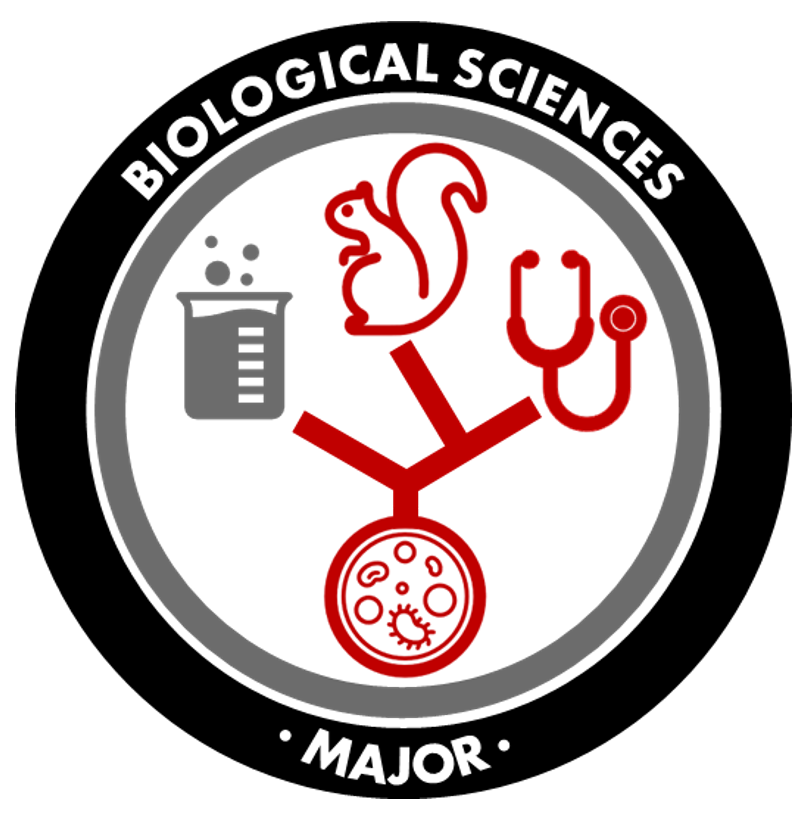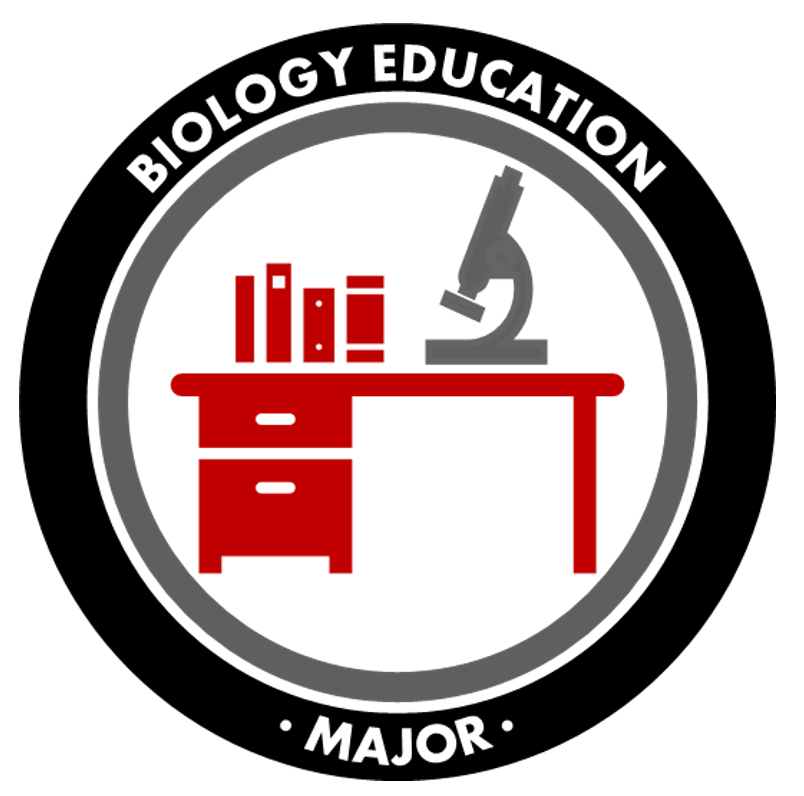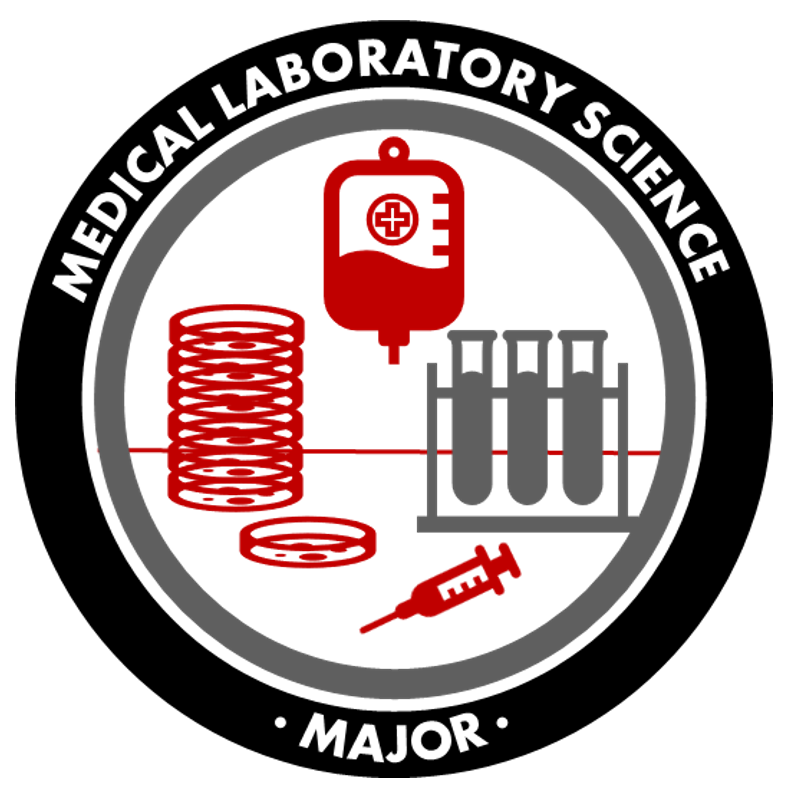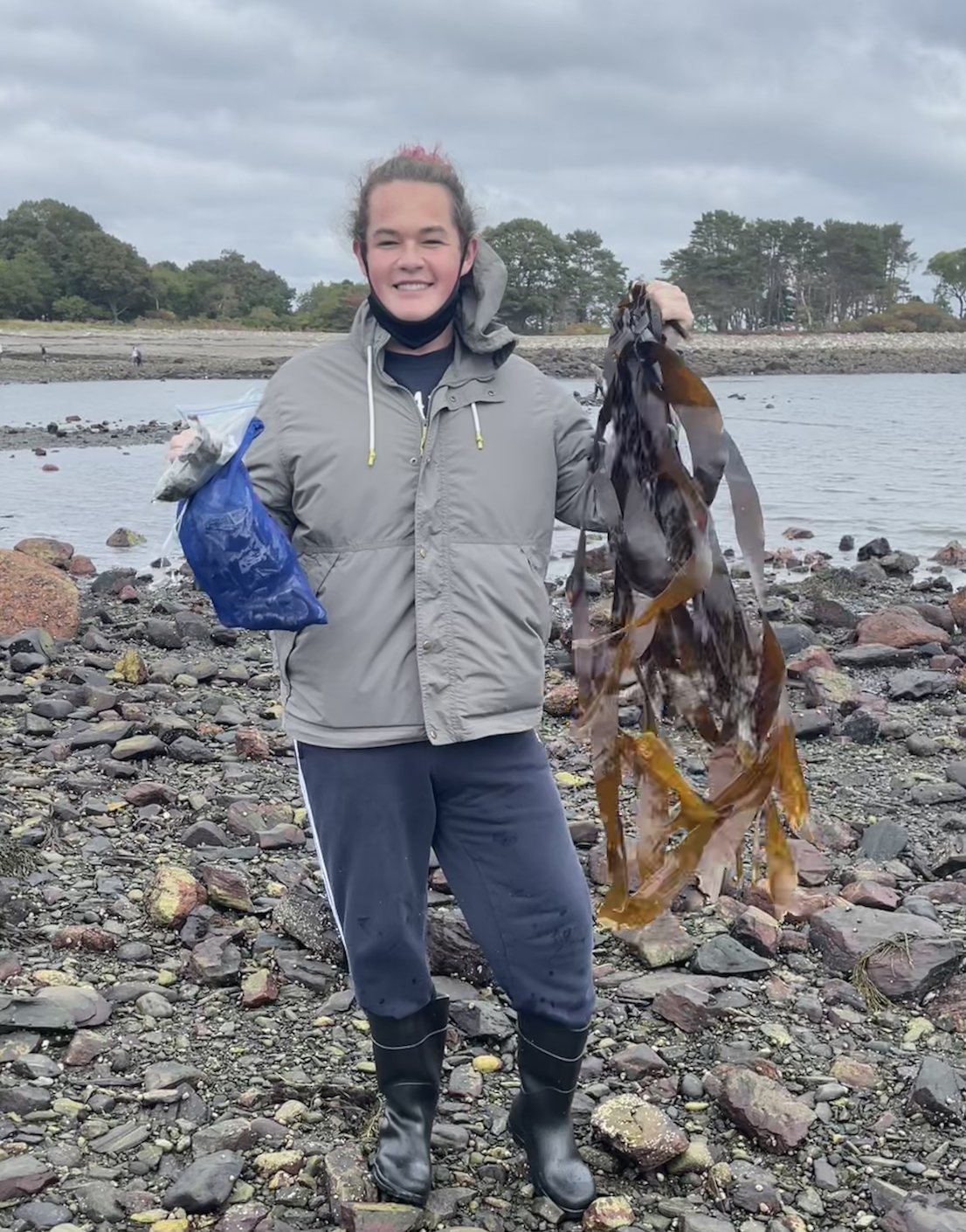Biology, Bachelor of Science (525)
- Undergraduate
- Bachelor of Science
- Science and Engineering
- Biology
Overview
The major in Biology (525) provides students the opportunity to undertake an in-depth study of biological sciences and its applications. A minor, second major, or certificate is not required. The major in Biology begins with foundation classes and laboratories that build into a core of advanced courses and laboratories. In addition to a required core, students complete a range of biology elective courses tailored to their interests to support their career goals. The students can also apply up to six credit hours of faculty-guided independent research and/or an internship experience toward their degree program.
The program offers six different concentrations - Applied Genetics (BIAG), Applied Microbiology (BIMI), Animal Physiology & Behavior (BIAP), Ecology, Wildlife, & Conservation (BIWC), Integrative Biology (BIIB), and Pre-Medical Professions (BIPM). These six concentrations are designed to facilitate essential requirements and provide training for a variety of career pathways and advanced degree programs to suit student interests.
Concentrations
- Applied Genetics (BIAG)
- Applied Microbiology (BIMI)
- Animal Physiology and Behavior (BIAP)
- Ecology, Wildlife, & Conservation (BIWC)
- Integrative Biology (BIIB)
- Pre-Medical Professions (BIPM)
Program Requirements (54 hours)
This option for a major in biology requires a minimum of 54 hours in biology including 29-30 hours at the 300 or higher level. No minor is required. A range of upper-level courses are aligned with six concentrations offered within the major.
A baccalaureate degree requires a minimum of 120 unduplicated semester hours. More information can be found at www.wku.edu/registrar/degree_certification.php.
Students who began WKU in the Fall 2014 and thereafter should review the Colonnade requirements located at: https://www.wku.edu/colonnade/colonnaderequirements.php.
| Code | Title | Hours |
|---|---|---|
| Required Courses | ||
| BIOL 120 & BIOL 121 | Biological Concepts: Cells Metabolism and Genetics and Biological Concepts: Cells, Metabolism, and Genetics Lab 1 | 4 |
| BIOL 122 & BIOL 123 | Biological Concepts: Evolution, Diversity, and Ecology and Biological Concepts: Evolution, Diversity, and Ecology Lab 1 | 4 |
| BIOL 489 | Professional Aspects of Biology | 1 |
| Required Supporting Courses | ||
| BIOL 382 | Introductory Biostatistics | 3-4 |
| or MATH 136 | Calculus I | |
| or MATH 183 | Introductory Statistics | |
| CHEM 120 & CHEM 121 | College Chemistry I and College Chemistry I Laboratory | 5 |
| PHYS 231 & PHYS 232 | Introduction to Physics and Biophysics I and Laboratory for Physics and Biophysics I | 4 |
| Total Hours | 21-22 | |
Applied Genetics (BIAG) Concentration
| Code | Title | Hours |
|---|---|---|
| Applied Genetics Core Courses | ||
| BIOL 224 & BIOL 225 | Animal Biology and Diversity and Animal Biology and Diversity Lab | 4 |
| BIOL 327 & BIOL 337 | Genetics and Genetics Laboratory | 4 |
| BIOL 316 | Evolution: Theory and Process | 3 |
| BIOL 312 | Bioinformatics | 4 |
| BIOL 319 | Introduction to Molecular and Cell Biology | 3 |
| or BIOL 382 | Introductory Biostatistics | |
| or BIOL 411 | Cell Biology | |
| BIOL 403 | Molecular Basis of Cancer | 3 |
| or BIOL 495 | Molecular Genetics | |
| Applied Genetics Electives | 12-13 | |
| Suggested electives, include at least one with an associated lab component* | ||
BIOL 319 | Introduction to Molecular and Cell Biology | |
BIOL 328 | Immunology | |
BIOL 335 | Neurobiology | |
BIOL 350 | Introduction to Recombinant Genetics | |
BIOL 369 | Internship in Biology | |
BIOL 382 | Introductory Biostatistics | |
BIOL 399 | Research in the Biological Sciences | |
BIOL 403 | Molecular Basis of Cancer | |
BIOL 407 | Virology | |
BIOL 411 | Cell Biology | |
BIOL 446 | Biochemistry I | |
BIOL 450 | Recombinant Gene Technology | |
BIOL 495 | Molecular Genetics | |
| Total Hours | 33-34 | |
Applied Microbiology (BIMI) Concentration
| Code | Title | Hours |
|---|---|---|
| Applied Microbiology Core Courses | ||
| BIOL 226 & BIOL 227 | Microbial Biology and Diversity and Microbial Biology and Diversity Lab | 4 |
| BIOL 319 & BIOL 322 | Introduction to Molecular and Cell Biology and Introduction to Molecular and Cell Biology Laboratory | 4 |
| BIOL 316 | Evolution: Theory and Process | 3 |
| BIOL 312 | Bioinformatics | 4 |
| BIOL 470 | Pathogenic Microbiology | 4 |
| BIOL 328 | Immunology | 3 |
| or BIOL 336 | Food Microbiology | |
| or BIOL 472 | Applied and Environmental Microbiology | |
| or BIOL 407 | Virology | |
| Applied Microbiology Electives | 11-12 | |
| Suggested electives * | ||
BIOL 328 | Immunology | |
BIOL 336 | Food Microbiology | |
BIOL 350 | Introduction to Recombinant Genetics | |
BIOL 369 | Internship in Biology | |
BIOL 399 | Research in the Biological Sciences | |
BIOL 407 | Virology | |
BIOL 446 | Biochemistry I | |
BIOL 450 | Recombinant Gene Technology | |
BIOL 472 | Applied and Environmental Microbiology | |
BIOL 495 | Molecular Genetics | |
| Total Hours | 33-34 | |
Animal Physiology and Behavior (BIAP) Concentration
| Code | Title | Hours |
|---|---|---|
| Animal Physiology and Behavior Core Courses | ||
| BIOL 224 & BIOL 225 | Animal Biology and Diversity and Animal Biology and Diversity Lab | 4 |
| BIOL 316 | Evolution: Theory and Process | 3 |
| BIOL 327 & BIOL 337 | Genetics and Genetics Laboratory | 4 |
| BIOL 330 & BIOL 331 | Animal Physiology and Animal Physiology Laboratory | 4 |
| BIOL 334 | Animal Behavior | 3 |
| BIOL 335 | Neurobiology | 3 |
| or BIOL 377 | Animal Form and Function | |
| or BIOL 464 | Endocrinology | |
| Animal Physiology and Behavior Electives | 12-13 | |
| Suggested electives, include at least one with an associated lab component * | ||
BIOL 315 | Ecology | |
BIOL 321 | Comparative Anatomy | |
BIOL 335 | Neurobiology | |
BIOL 377 | Animal Form and Function | |
BIOL 382 | Introductory Biostatistics | |
BIOL 369 | Internship in Biology | |
BIOL 399 | Research in the Biological Sciences | |
BIOL 446 | Biochemistry I | |
BIOL 464 | Endocrinology | |
| Total Hours | 33-34 | |
Ecology, Wildlife, & Conservation (BIWC)
| Code | Title | Hours |
|---|---|---|
| Ecology, Wildlife, & Conservation Core Courses | ||
| BIOL 222 & BIOL 223 | Plant Biology and Diversity and Plant Biology and Diversity Lab | 4 |
| or BIOL 224 & BIOL 225 | Animal Biology and Diversity and Animal Biology and Diversity Lab | |
| BIOL 315 & BIOL 355 | Ecology and Ecology Lab | 5 |
| BIOL 316 | Evolution: Theory and Process | 3 |
| BIOL 327 & BIOL 337 | Genetics and Genetics Laboratory | 4 |
| BIOL 332 | Principles of Wildlife Ecology | 3-4 |
| or BIOL 458 | Fisheries Management | |
| BIOL 382 | Introductory Biostatistics | 3 |
| Ecology, Wildlife, & Conservation Electives | 10-11 | |
| Suggested electives, include at least one with an associated lab component * | ||
BIOL 325 | Insect Biodiversity | |
BIOL 332 | Principles of Wildlife Ecology | |
BIOL 326 | Ornithology | |
BIOL 369 | Internship in Biology | |
BIOL 399 | Research in the Biological Sciences | |
BIOL 348 | Plant Taxonomy | |
BIOL 456 | Ichthyology | |
BIOL 457 | Herpetology | |
BIOL 458 | Fisheries Management | |
BIOL 459 | Mammalogy | |
BIOL 477 | Marine Biology | |
BIOL 485 | Field Biology | |
BIOL 497 | Aquatic Field Ecology | |
| Total Hours | 33-34 | |
Integrative Biology (BIIB) Concentration
| Code | Title | Hours |
|---|---|---|
| BIOL 222 & BIOL 223 | Plant Biology and Diversity and Plant Biology and Diversity Lab | 4 |
| or BIOL 224 & BIOL 225 | Animal Biology and Diversity and Animal Biology and Diversity Lab | |
| or BIOL 226 & BIOL 227 | Microbial Biology and Diversity and Microbial Biology and Diversity Lab | |
| BIOL 319 & BIOL 322 | Introduction to Molecular and Cell Biology and Introduction to Molecular and Cell Biology Laboratory | 4 |
| or BIOL 327 & BIOL 337 | Genetics and Genetics Laboratory | |
| BIOL 315 | Ecology | 3 |
| or BIOL 316 | Evolution: Theory and Process | |
| Laboratory Experience Courses (Select Two) * | ||
BIOL 212 | Genome Discovery Exploration | |
BIOL 312 | Bioinformatics | |
BIOL 321 | Comparative Anatomy | |
BIOL 322 | Introduction to Molecular and Cell Biology Laboratory | |
BIOL 325 | Insect Biodiversity | |
BIOL 331 | Animal Physiology Laboratory | |
BIOL 337 | Genetics Laboratory | |
BIOL 338 | Immunology Lab | |
BIOL 348 | Plant Taxonomy | |
BIOL 350 | Introduction to Recombinant Genetics | |
BIOL 355 | Ecology Lab | |
BIOL 356 | Ornithology Lab | |
BIOL 404 | Techniques and Theory of Electron Microscopy | |
BIOL 412 | Cell Biology Laboratory | |
BIOL 447 | Biochemistry Laboratory | |
BIOL 450 | Recombinant Gene Technology | |
BIOL 456 | Ichthyology | |
BIOL 457 | Herpetology | |
BIOL 458 | Fisheries Management | |
BIOL 470 | Pathogenic Microbiology | |
BIOL 472 | Applied and Environmental Microbiology | |
BIOL 485 | Field Biology | |
BIOL 496 | Plant Biotechnology | |
BIOL 497 | Aquatic Field Ecology | |
| Science Process Courses (Select One) * | ||
BIOL 212 | Genome Discovery Exploration | |
BIOL 312 | Bioinformatics | |
BIOL 331 | Animal Physiology Laboratory | |
BIOL 350 | Introduction to Recombinant Genetics | |
BIOL 355 | Ecology Lab | |
BIOL 397 | Scientific Process | |
BIOL 404 | Techniques and Theory of Electron Microscopy | |
BIOL 407 | Virology | |
BIOL 412 | Cell Biology Laboratory | |
BIOL 456 | Ichthyology | |
BIOL 457 | Herpetology | |
BIOL 470 | Pathogenic Microbiology | |
BIOL 495 | Molecular Genetics | |
BIOL 496 | Plant Biotechnology | |
BIOL 497 | Aquatic Field Ecology | |
HON 404 | Honors Thesis / Project II | |
| Total Hours | 11 | |
Pre-Medical Professions (BIPM) Concentration
| Code | Title | Hours |
|---|---|---|
| Pre-Medical Professions Core Courses | ||
| BIOL 224 & BIOL 225 | Animal Biology and Diversity and Animal Biology and Diversity Lab | 4 |
| or BIOL 226 & BIOL 227 | Microbial Biology and Diversity and Microbial Biology and Diversity Lab | |
| BIOL 316 | Evolution: Theory and Process | 3 |
| BIOL 319 & BIOL 322 | Introduction to Molecular and Cell Biology and Introduction to Molecular and Cell Biology Laboratory | 4 |
| or BIOL 327 & BIOL 337 | Genetics and Genetics Laboratory | |
| BIOL 330 & BIOL 331 | Animal Physiology and Animal Physiology Laboratory | 4 |
| or BIOL 411 & BIOL 412 | Cell Biology and Cell Biology Laboratory | |
| or BIOL 397 | Scientific Process | |
| BIOL 321 | Comparative Anatomy | 3-4 |
| or BIOL 328 | Immunology | |
| or BIOL 382 | Introductory Biostatistics | |
| or BIOL 446 | Biochemistry I | |
| Pre-Medical Professions Electives | 13-16 | |
| Suggested electives, include at least one with an associated lab component * | ||
BIOL 319 | Introduction to Molecular and Cell Biology | |
BIOL 327 | Genetics | |
BIOL 328 | Immunology | |
BIOL 330 | Animal Physiology | |
BIOL 335 | Neurobiology | |
BIOL 321 | Comparative Anatomy | |
BIOL 369 | Internship in Biology | |
BIOL 382 | Introductory Biostatistics | |
BIOL 397 | Scientific Process | |
BIOL 399 | Research in the Biological Sciences | |
BIOL 411 | Cell Biology | |
BIOL 446 | Biochemistry I | |
BIOL 467 | Biochemistry II | |
BIOL 464 | Endocrinology | |
BIOL 470 | Pathogenic Microbiology | |
| Total Hours | 32-35 | |
- 1
Must complete with a grade of “C” or better.
- 2
Elective Coursework:
- In consultation with their advisor, students select majors-level coursework to obtain a minimum of 54 credits total, provided that at least 30 hours total are upper-division courses.
- Students may count up to 6 credit hours of a combination of BIOL 369 and/or BIOL 399, and up to 4 credits of BIOL 485 toward this major.
- Professional Programs have additional course requirements beyond those listed in PMP Concentration. Consult with Pre-health advisors.
- *
The following BIOL courses will not count towards the BIOL electives nor the Biology major requirements: BIOL 113, BIOL 114, BIOL 131, BIOL 231, BIOL 207, BIOL 208, BIOL 295, BIOL 303.
Finish in Four Plans
| First Year | |||
|---|---|---|---|
| Fall | Hours | Spring | Hours |
| BIOL 120 & BIOL 121 or BIOL 122 and BIOL 123 | 4 | BIOL 122 & BIOL 123 or BIOL 120 and BIOL 121 | 4 |
| MATH 116 (or higher) | 3 | CHEM 120 & CHEM 121 | 5 |
| ENG 100 | 3 | COMM 145 | 3 |
| HIST 101 or HIST 102 | 3 | Colonnade - Explorations | 3 |
| Elective | 3 | ||
| 16 | 15 | ||
| Second Year | |||
| Fall | Hours | Spring | Hours |
| BIOL 222 & BIOL 223 , BIOL 224 and BIOL 225, or BIOL 226 and BIOL 227 | 4 | BIOL 319 & BIOL 322 or BIOL 327 and BIOL 337 | 4 |
| Concentration Supporting Elective (see Biology advisor) | 4 | ENG 200 | 3 |
| Colonnade - Foundations | 3 | PHYS 231 & PHYS 232 | 4 |
| Colonnade - Explorations | 3 | Colonnade - Explorations | 3 |
| 14 | 14 | ||
| Third Year | |||
| Fall | Hours | Spring | Hours |
| BIOL 315 or BIOL 316 | 3 | Upper-Level BIOL Elective with Lab | 4 |
| Upper-Level BIOL Elective with lab (see Biology advisor) | 4 | Upper-Level Elective | 3 |
| Colonnade - Explorations | 3 | Upper-Level BIOL Elective | 3 |
| Colonnade - Connections | 3 | Colonnade Connections | 3 |
| Upper-Level Elective | 3 | Writing in the Disciplines | 3 |
| 16 | 16 | ||
| Fourth Year | |||
| Fall | Hours | Spring | Hours |
| BIOL 489 | 1 | Upper-Level BIOL Elective | 4 |
| Upper-Level BIOL Elective | 4 | Upper-Level BIOL Elective | 4 |
| World Language | 3 | Colonnade - Connections | 3 |
| BIOL Process Elective | 3 | Upper-Level BIOL Elective | 4 |
| Upper-Level Elective | 3 | ||
| 14 | 15 | ||
| Total Hours 120 | |||






